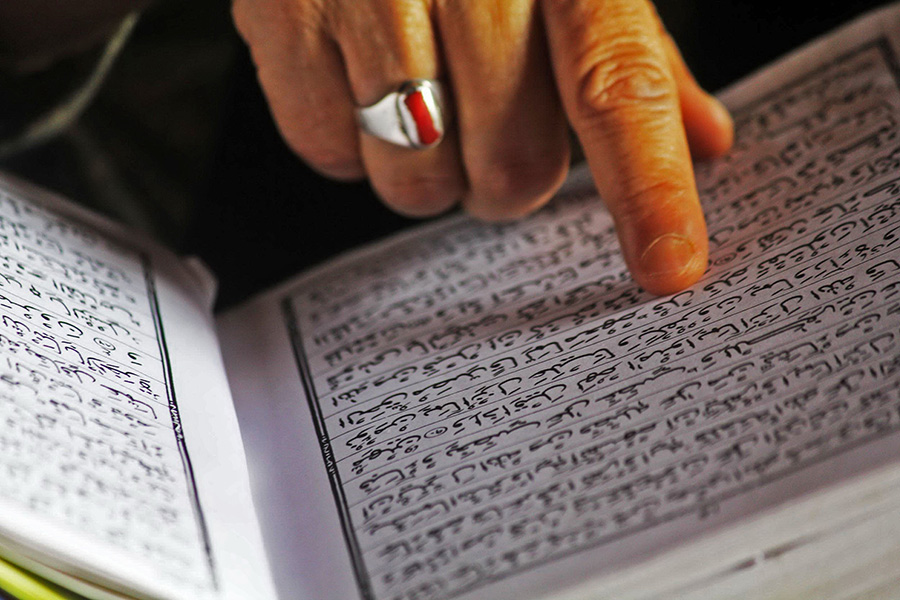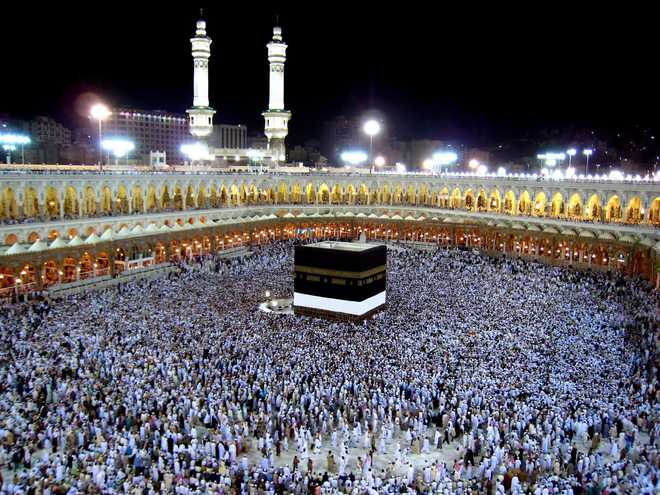by Suhaib Rafi Mir
When we talk about human rights in Islam, it means that these rights have been granted to us by God, not by any king or by any legislative statute.

Human rights are rights that are generally available to everyone, irrespective of their gender, caste, nationality, and colour. Human rights are related to life and liberty, the right to liberty, and so on. In the modern world, the state or governing body is held accountable for ensuring such rights.
As we are living in an advanced era but unfortunately, instances of prejudices and inequalities are often seen. Who is responsible for it? And who has a responsibility towards the prevention and protection of human rights? Human right is a pertinent motif everywhere and for it, certain measures had been taken internationally and notionally to uphold it.
Human Rights In The Quran
Here I want to highlight human rights through the lens of religion. The Quran is a primary source of Islamic jurisprudence and the hadith is the secondary.
In Quran, Allah laid down that, “People, I created you all and made you into races and tribes so that you should recognize one another. In God’s eyes, the most honoured of you are the ones most mindful of him, God is all-knowing all aware”

By this verse, Allah clearly says that in his sight the only distinguishing factors between humans are virtuousness and holiness and not their colour, race, caste. Hazrat Muhammad (PBUH), the last Prophet of Allah eliminated all the social problems unbridled among the Arabs in those days.
Islam’s contribution to human right is always appreciated when viewed against the backdrop of world history as well as the reality of modern times. When we talk about human rights in Islam, it means that these rights have been granted to us by God, not by any king or by any legislative statute.
Basic human rights recognised by the Quran and the Hadith, have a look at them
Primarily Right to live and respect human dignity is a basic human right recognised by Allah through this Quranic verse “whosoever kills a human being (without any reasonable or justifiable cause), manslaughter or corruption on earth, it is as though he had killed all mankind”. Every human being’s life is valuable and everyone’s life should be protected irrespective of nationality, race, age, colour.
Quran and the hadiths of Prophet Muhammad clearly and categorically laid down that whosoever hurts any human being or infringed his right, is a sinner and has committed the most serious and sinful act and will be punished on the day of judgement for all his wrongdoings.
The Right to freedom is another right that comes into the category of basic rights. Islam has forbidden the act of capturing a free man and then making him a slave or selling him for slavery. The people of Arab during the days of prophet Muhammad’s preaching were indulging in human trafficking, they enslave any free man and then transport these slaves to different regions. Prophet Muhammad (PBUH) clearly and categorically forbade this kind of act by calling it an inhumane act and spread the peace and the love of brotherhood by his teachings.
Prophet Muhammad (PBUH) said that “there are three categories of people against whom I shall myself be a plaintiff on the day of judgement”, amongst them one is who enslaves a free man.
The Right to security is another right that comes into the category of basic rights. Allah laid down in Quran, “And whoever saves a life it is as he had saved the lives of all mankind”.
There can be different forms of saving the life, a person who is in trouble, whether ill or wounded, every human being have to protect the interests of an affected person irrespective of his nationality, race, caste, colour. If you know that he needs help then it is your first and foremost duty to help him, if he is in starvation it is your duty to feed him. According to the Qur’an and the hadiths, security is a basic right and whoever does not help a needy person despite knowing all the facts, it is as if he has committed a serious sin and will be punished accordingly on the day of judgement.

Freedom of religion. Prophet Muhammad (PBUH) was sent by God to spread Islam. Despite facing difficulties everywhere he didn’t stop, and the irony is that he spread Islam only by his teachings, by his calm behaviour, by his character not by any kind of violence. During the initial times of his preachings, Allah laid down in Quran that “O Muhammad, say these disbelievers, I don’t worship what you worship nor are you worshippers of what I worship nor will be a worshipper of what you worship, nor will you be worshippers of what I worship. For you is your religion and for me is my religion.”
These verses indicate that Muhammad (PBUH) didn’t use force and didn’t allow his sahabas to force anyone to accept Islam. On the occasion of the conquest of Makkah, the Muslims had full authority to avenge the injustice done to them in past, but Muhammad (PBUH) declared that today is a day of forgiveness and everyone will be forgiven and the oppression that went with them in past should be ignored.
By seeing this attitude of Muhammad (PBUH) and Muslims thousands of people joined the religion of Islam and yes, this is an attitude of the religion of Islam towards human right.
Women’s right: Under Islamic jurisprudence women have a right to own property, and business. Women have a right to get shares from their father’s property and after marriage shares from their husband’s property. Allah laid down in Quran that, you are their garments, and they are yours, men and women are each other’s garments. Here the importance given to a male is the same given to a female.

Before marriage, a father has a responsibility to maintain his daughter and after marriage, the husband has a responsibility to maintain his wife properly, if he denied doing so, it is considered a most serious and sinful act.
The above-mentioned rights are some basic right, which is available to all human beings and Islam laid stress on the prevention and protection of these rights. Islamic countries where the fundamental laws are brought from the Quran and hadiths implement penally these laws for the interest of human rights.
(Author is studying law at the University of Kashmir. The opinions expressed in this article are those of the author’s and do not purport to reflect the opinions or views of Kashmir Life.)















